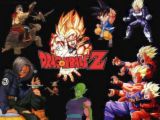
History Of Manga
The Japanese word manga literally meaning “moving pictures” represents a form of comic or cartoon published and created in Japan. It was late 18th century when the earliest form of manga was published. The idea was realized during the late 18th the
century when printed illustrations were popular among
consumers. Books printed using woodblock technology,
which contained texts, positioned beside pictures were
thus created. Similar to modern manga, these books also
depicted themes associated with humor, fantasy and
romance. However, due to government censorship, these
books had vanished. Although it has many striking
resemblances, it is believed that American style comics
and cartoons in the 19th century were the direct
ancestors of the modern
Modern day manga began during the Occupation and Post-Occupation years, which lasted from mid 1940s to early 1960s. During the rebuilding of Japan’s economy there was no publication censorship; therefore, it resulted in an outburst of manga creativity.
Known as the “God of manga”, Osamu Tezuka created one of the most popular manga series at that time, Mighty Atom (Astro Boy) in 1951. Astro Boy quickly gained fame as a representation and hero of peace and eradication of war.
Following Tezuka’s footsteps, many young artistes started imitating his style and this had led to an expansion of the manga market. Contrasting from past consumers, the new batch of readers continued reading manga after they got to high school, or even college.
Amid 1950s to late 1960s, there were escalating numbers of audiences in Japan particularly for the shonen and shojo genres. Shonen manga, literally meaning “young boy”, are manga targeting young male readers. Shojo manga, literally meaning “young girl” are manga targeting young female readers. Up to 1969, shojo manga are drawn mostly by adult men.
|
Home
History of Manga
Types of Manga
List of Popular Manga
Places to buy Manga
Places to rent/read Manga
Contact Us
Site Map
Copyright © 2005 - www.nuts.sg



 manga.
manga.